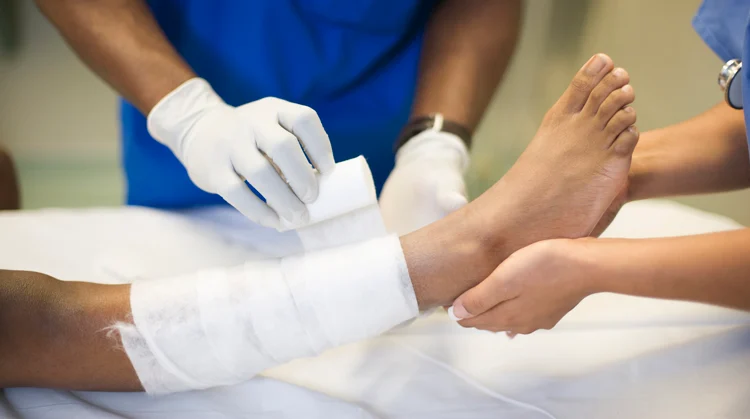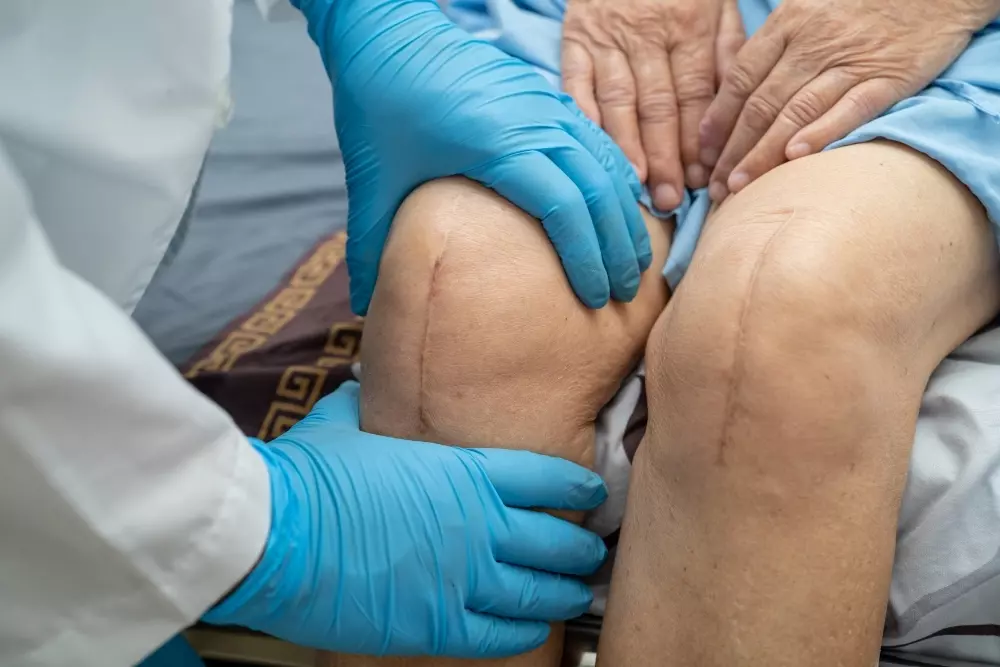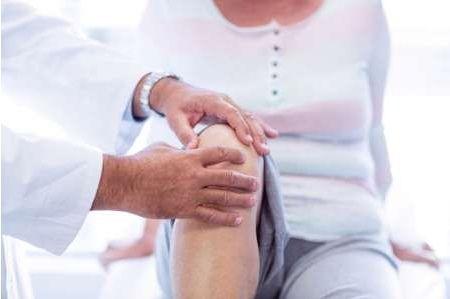Living with hip pain can affect every aspect of daily life—walking, climbing stairs, getting out of bed, or even enjoying simple moments with family. For many people, hip replacement surgery provides the chance to regain mobility and independence. While surgical advances such as the Direct Anterior Approach (DAA) have made recovery faster and less painful, one of the most important factors in a successful outcome is understanding how to prepare for hip replacement.
Preparation is not just about getting ready for the day of surgery; it’s about setting yourself up for the best possible recovery. Whether you are planning treatment locally or traveling abroad to the Philippines for more affordable, world-class orthopedic care, this guide will walk you through every step of how to prepare for hip replacement surgery.
Why Preparation Matters
Learning how to prepare for hip replacement gives patients confidence and ensures a smoother recovery. Patients who take preparation seriously often experience less pain, shorter hospital stays, and quicker returns to everyday activities. Proper preparation includes medical readiness, home adjustments, emotional planning, and logistical arrangements for those traveling internationally for surgery.
At the Hips and Knees Joint Restoration and Replacement Center in the Philippines, we emphasize preparation as part of the healing journey. Patients from the USA, Australia, New Zealand, and the UK who come to our center are supported with clear pre-surgical instructions, helping them feel secure and informed before undergoing treatment.
Medical Preparations Before Surgery
The first step in how to prepare for hip replacement involves thorough medical evaluation. Your surgeon will request diagnostic tests such as X-rays, blood work, and possibly an electrocardiogram to ensure you are fit for surgery. These tests identify potential risks and allow doctors to tailor the surgical plan to your health profile.
Lifestyle adjustments are equally important. If you smoke, stopping several weeks before surgery improves circulation and healing. Limiting alcohol also helps reduce complications during and after the operation. Patients with chronic conditions like diabetes or high blood pressure should work closely with their doctors to stabilize these issues before surgery.
Another important part of how to prepare for hip replacement is pre-surgery exercise. Strengthening your muscles before the operation helps your body adapt during recovery. Gentle stretching, low-impact aerobic activities, and specific strengthening routines for the hips, thighs, and core can make a big difference. At our center, personalized pre-surgical therapy plans are often recommended to build strength and flexibility in preparation for surgery.
Home Preparation for Recovery
A crucial part of how to prepare for hip replacement is making your home recovery-friendly. Since mobility may be limited in the first few weeks, small changes at home can prevent accidents and make daily life easier.
Remove tripping hazards like loose rugs or cluttered walkways. Install grab bars in the bathroom, particularly near the toilet and shower. Place a sturdy chair with arms in your living space to help you sit and stand safely. Keeping frequently used items—like your phone, water bottle, and medications—within easy reach also reduces unnecessary strain.
Preparing meals in advance is another tip for how to prepare for hip replacement. Stock your freezer with healthy, ready-to-eat meals or arrange for a family member to help with cooking during the first weeks of recovery. These preparations minimize stress and allow you to focus fully on healing.
Packing for Your Hospital Stay
When considering how to prepare for hip replacement, packing the right items for your hospital stay is often overlooked but can significantly improve comfort. Comfortable, loose-fitting clothing makes it easier to move after surgery. Supportive shoes without laces help you walk safely during early rehabilitation. Personal items like toiletries, glasses, and a phone charger are essentials you won’t want to forget.
Entertainment, such as books, a tablet, or music, can help pass the time during recovery in the hospital. International patients traveling to the Philippines for surgery should also include travel documents, insurance details, and accommodation confirmations. Our team assists patients with planning their travel and ensures their stay is both comfortable and well-coordinated.
Mental and Emotional Readiness
Another important part of how to prepare for hip replacement is emotional preparation. Feeling nervous before surgery is natural, but having the right mindset makes a difference. Setting realistic expectations for recovery helps reduce stress. While you may not be running marathons immediately, many patients notice improved mobility and reduced pain within weeks.
Building a strong support system is also key. Whether it’s family, friends, or caregivers, knowing you have people who can assist with meals, transportation, or emotional encouragement eases the recovery journey. At our center, we share patient success stories to inspire and reassure new patients that a fulfilling life after hip replacement is possible.
Preparing for Recovery Abroad
For international patients, how to prepare for hip replacement includes travel planning. Many individuals from the USA, Australia, New Zealand, and the UK travel to the Philippines for treatment due to lower costs, shorter wait times, and world-class orthopedic expertise.
Patients should arrange passports, medical visas if needed, and confirm accommodations for both pre- and post-surgery recovery. Our center provides assistance with these arrangements, ensuring the journey is seamless. We also offer priority scheduling, meaning patients can book their surgery within two to four weeks after their consultation, avoiding the long delays often experienced in other countries.
The Filipino tradition of warm hospitality plays an important role in the recovery process, giving international patients a sense of comfort and belonging throughout their stay. This makes the Philippines not just a practical choice, but also a supportive environment for healing.
What to Expect After Surgery
Knowing what happens after the operation is part of how to prepare for hip replacement. Immediately after surgery, patients begin rehabilitation with the guidance of a physical therapist. Simple movements and assisted walking are often introduced within a day or two.
Pain management is carefully monitored, and most patients notice steady improvement week by week. The timeline of recovery varies, but many people return to light activities within six weeks and continue building strength for several months.
Preparation is what makes this transition smoother. Patients who follow pre-surgery exercise routines, arrange their homes for safety, and have strong emotional support tend to recover faster and return to active lifestyles sooner.
Takeaway
Learning how to prepare for hip replacement is one of the most important steps in ensuring surgical success and a smoother recovery. From medical and lifestyle adjustments to home readiness, emotional preparation, and international travel planning, every step contributes to better outcomes.
At the Hips and Knees Joint Restoration and Replacement Center in the Philippines, we are dedicated to guiding patients through every phase of preparation and recovery. With advanced surgical techniques like the Direct Anterior Approach, compassionate care, and accessible pricing, we help patients from around the world move better and live better.
If you’re ready to regain mobility and explore affordable options abroad, reach out to our team today to begin your journey toward healing.
Frequently Asked Questions
How long does it take to prepare for hip replacement surgery?
Most patients spend four to six weeks preparing for surgery, focusing on medical clearance, exercise, and home adjustments.
What exercises should I do before hip replacement?
Gentle strengthening and stretching exercises for the hips, thighs, and core are recommended. Your surgeon or physical therapist can provide a personalized plan.
Can international patients book surgery quickly in the Philippines?
Yes. At our center, international patients can often schedule surgery within two to four weeks of consultation, much faster than wait times in many Western countries.
How soon can I travel home after hip replacement?
Most patients can travel within two to four weeks after surgery, depending on their progress and doctor’s advice.
What support will I get after returning to my country?
We provide telemedicine follow-ups, personalized rehabilitation guidance, and ongoing communication to ensure your recovery continues smoothly after you return home.











